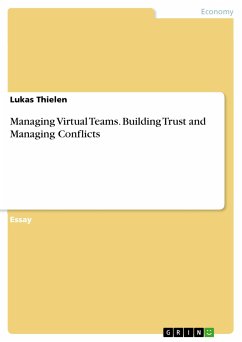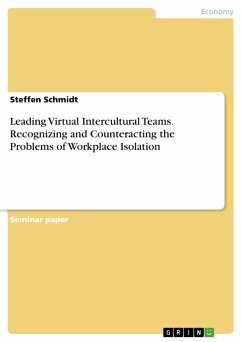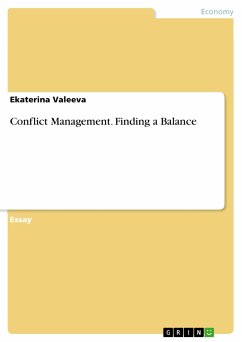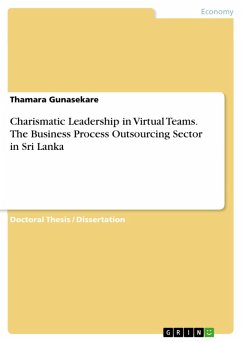Essay from the year 2017 in the subject Business economics - Business Management, Corporate Governance, grade: 2,0, (International University of Applied Sciences), language: English, abstract: At the turn of the century, globalisation and the use of communication technologies enabled organizations to alter their organization based structures from traditional to virtual settings. The use of agile teams, that can be arranged on the fly, has expanded considerably in response to the competitive, complex and challenging business environment. Traditionally, teams operated in face- to-face settings, but with advances in information and communication systems, virtual collaboration has become commonplace. Virtual teams have plenty of advantages. Companies can bring together their best global talents at low cost while offering their employees great flexibility and autonomy. Since team members span multiple time zones and are able to work parallel instead of sequential, organizations are able to significantly reduce their response time and time to market. It is fair to say that the digital evolution is transforming the future of work. But the benefits of virtual collaboration come with challenges that need to be mastered by organizations. Project coordination, building relationships, establishing trust and achieving effective teamwork are only few aspects that differ from conventional teams when considered in detail. Teams with multi-cultural backgrounds that are geographically dispersed and virtually composed have been in practice and studied for more than three decades. Yet managers still struggle with how to get them perform and collaborate properly. Bad communication, non existing trust and conflicts seem to be the main causes of failure in virtual collaboration. The purpose of this research essay is to understand the characteristics of managing virtual teams by analysing relevant literature, focused on the areas of building trust and managing conflicts in particular. The essay aims to examine the impact and relation that trust and conflict management have with the performance of a team and the group's cohesion.
Dieser Download kann aus rechtlichen Gründen nur mit Rechnungsadresse in A, B, BG, CY, CZ, D, DK, EW, E, FIN, F, GR, HR, H, IRL, I, LT, L, LR, M, NL, PL, P, R, S, SLO, SK ausgeliefert werden.









